REBNY 2025: Changing Tides and This Year’s Honorees
By The Editors January 15, 2025 6:00 am
reprints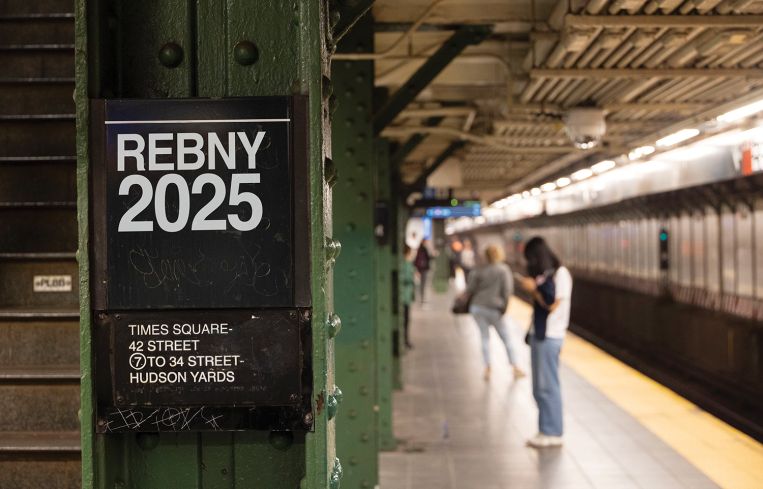
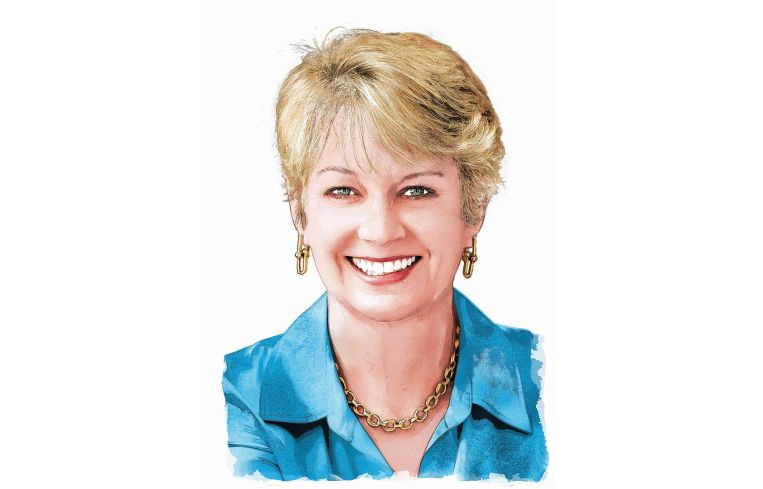
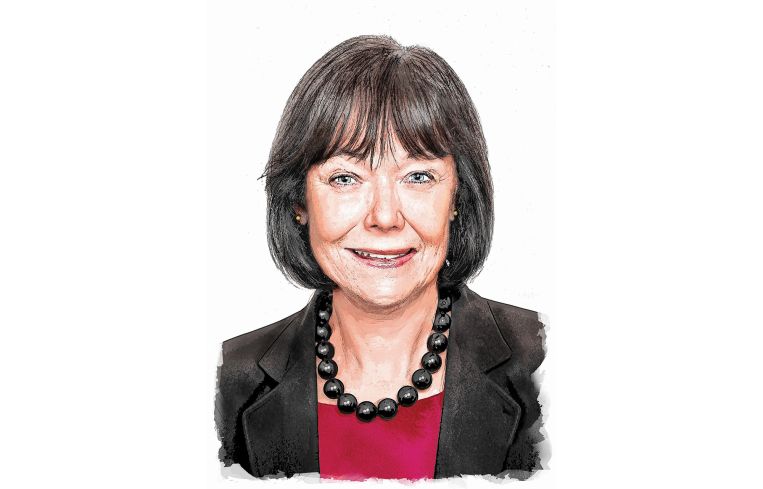
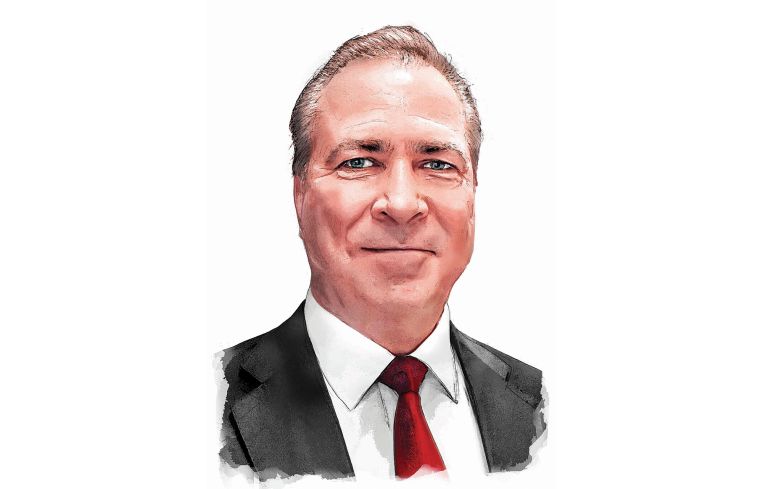
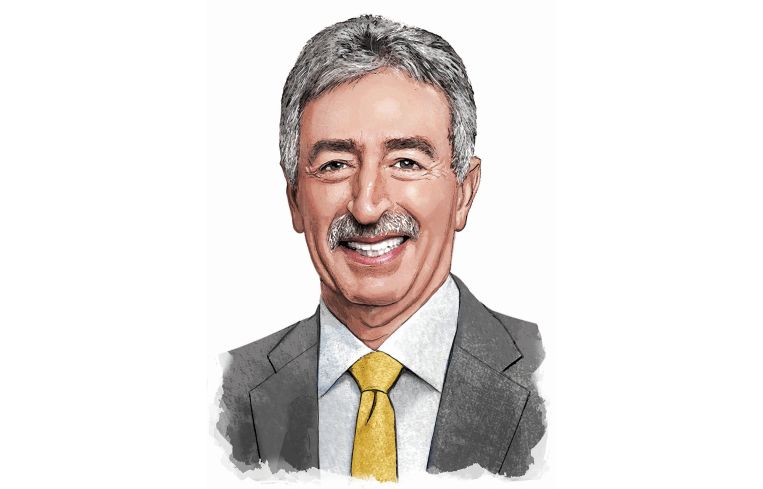
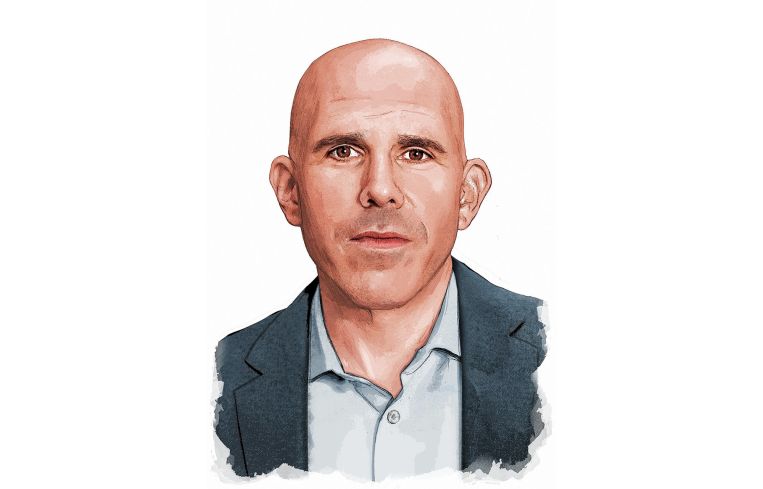
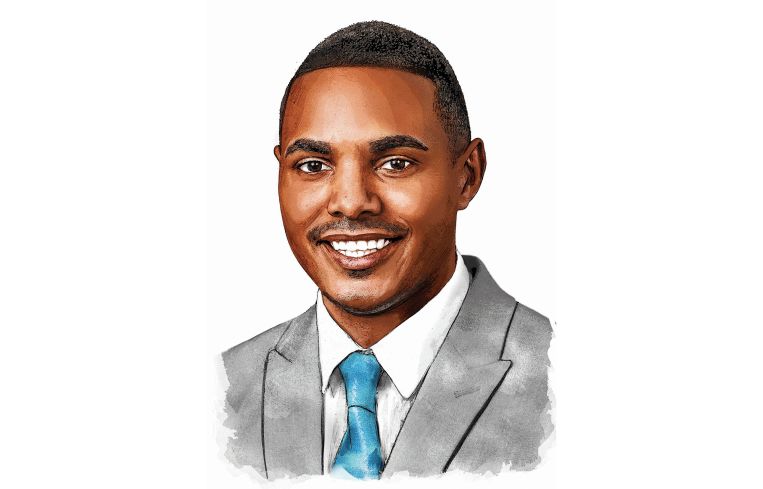
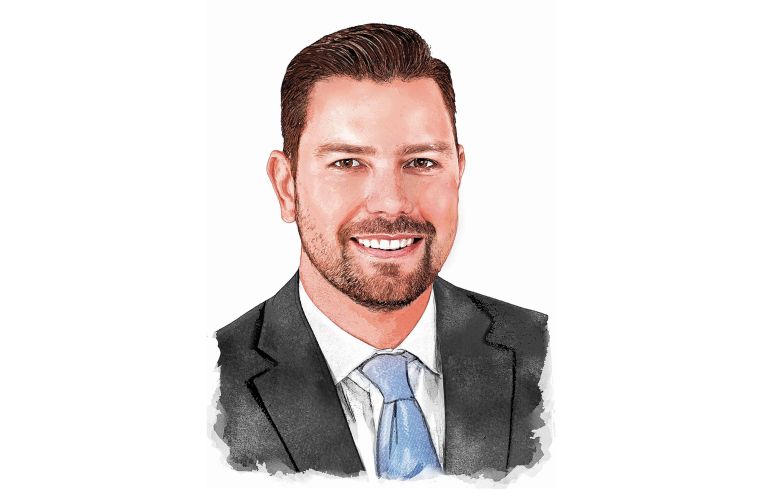
The Real Estate Board of New York has suffered some defeats in recent years.
Starting in the summer of 2019 with the passage of a sweeping series of rent reforms, it very much looked like the industry’s powerful lobbying arm had lost much of its luster.
But in 2019 REBNY (and the industry writ large) didn’t know how good they had it. Nine months later the city would shut down due to the COVID-19 pandemic. Suddenly, REBNY would not just have to face onerous new rules on decontrol — the very business they championed was facing an existential crisis.
When other events happened that would have once seemed disastrous — like a powerful ally (Gov. Andrew Cuomo) being forced to resign — it just seemed like adding jaywalking charges on top of armed robbery. But this was a real blow, as was state lawmakers’ inability to pass tax incentives for development like 421a, which expired in 2022 and which multifamily developers considered their lifeblood.
And, yet, in 2025, REBNY looks like it’s in better shape than at any time since 2020.
City of Yes just passed. This is the most vital piece of zoning legislation in decades, and should spur more residential development, including office conversions, in a city that’s badly underhoused.
Moreover, while 421a might be dead, the 485x abatement law that passed last year offers the industry a bone on tax breaks for multifamily projects.
After an initial stumble over the summer, congestion pricing (which REBNY has long championed) went into effect earlier this month.
And, despite multiple indictments and investigations of the administration of Eric Adams, the mayor has not been as quick to offer his resignation as Cuomo was. (NYC owners, for one, haven’t lost an ounce of their ardor for the mayor, who is one of the industry’s biggest boosters.)
But, beyond these policy victories, one of the best things that could have happened to REBNY is the revival of faith the industry has shown in itself.
Companies have been slowly choosing office in the office-versus-WFH battle, and leasing actually surpassed (very slightly) pre-COVID numbers with a dazzling 33.3 million square feet of deals in Manhattan last year. Financing, while still a little cold, is no longer frozen in carbonite, as evidenced by some heavies such as Tishman Speyer scoring a $3.5 billion CMBS refinancing of Rockefeller Center in October and almost that much on The Spiral last week.
Yes, there is still a lot that has the industry (and its lobbying arm) worried, but REBNY has more swagger than it’s had in a long time.
Scroll through to read profiles of this year’s REBNY honorees written by Larry Getlen. —Max Gross
Michelle Adams
Senior managing director for global external relations and business development at Tishman Speyer
The Kenneth R. Gerrety Humanitarian Award
Michelle Adams is in charge of all external relations for Tishman Speyer, guiding communications on all aspects of the owner and developer’s business, community and government affairs and philanthropy, and guiding the discourse on its development and acquisition projects. She is also a key liaison between the company and the public sector.
Her work for Tishman includes representing the company within various organizations, sitting on the boards of REBNY’s executive committees as well as the boards of the Grand Central Partnership, the Hudson Yards Hell’s Kitchen Alliance, the Downtown Brooklyn Partnership, New York’s United Hospital Fund, the Long Island City Partnership, and the Alfred E. Smith Memorial Foundation, which supports vulnerable populations. Adams has also served as a mentor for the REBNY Fellows program.
Prior to joining Tishman Speyer in 2010, Adams spent almost a decade as the executive director of The Association for a Better New York, a nonprofit that works with corporations and other nonprofits to advance causes and initiatives that help the city.
During her time there, she assisted the organization in forming and strengthening relations with public officials and other entities on the city, state and federal levels while growing the association’s membership rolls. Adams helped advance numerous projects that accelerated the city’s post-9/11 revival.
She has also served as the vice president of corporate affairs for the Grand Central Partnership, and as deputy director for the 14th Street-Union Square BID/LDC. —Larry Getlen
Nicola Heryet
Principal at Avison Young
The Louis Smadbeck Memorial Broker Recognition Award
Nicola Heryet had one of the more unlikely origin stories for a successful New York real estate broker, selling Indian-made diesel engines in her native England.
“I had to bring prospective clients over to India so they could see our factories,” said Heryet. “If you can sell an Indian-made diesel engine, you can pretty much sell anything.”
It was shortly after arriving in the U.S. in 1976 to open an American office for her employer that Heryet’s life took a turn. Deciding to quit that job and return to England, Heryet saw a New York Times ad that read, “Are you interested in a career in real estate?”
She answered the ad out of curiosity, and met a recruiter named Paula Burns who said, “I’m going to make you a very rich woman.”
Heryet was hired at a residential management company, and then shifted to the commercial side of the business shortly after. In time, she would spend 14 years at Colliers, five years at the old Cassidy Turley, and a year at Cushman & Wakefield before joining Avison Young in 2016.
Now, almost 40 years into her career, Heryet has facilitated deals for more than 35 million square feet of New York office space. This is her second REBNY award win, as she shared the Robert T. Lawrence Memorial Award in 2002 with Colliers colleagues Mark Boisi and Neil Lipinski for leading the 740,000-square-foot relocation of the offices of the United Federation of Teachers (UFT).
Heryet notes that the UFT deal was an especially notable one because it was the first major deal in the city after 9/11.
“They leased 52 Broadway and purchased 50 Broadway for a total of approximately 750,000 square feet. It was a major statement that the United Federation of Teachers made post-9/11 in going right by the Trade Center,” said Heryet.
Given the timing and the circumstances, that deal called for deft coordination of many elements, Heryet recalled. “In order for the building to work for UFT, massive, massive work had to be done,” she said. “We had to create a parking lot beneath the building and take out columns for a 1,000-person conference center. There was a huge commitment from a lot of people to make that deal happen.”
One of the most significant advancements Heryet has noticed in commercial real estate throughout her tenure is in the number of women seeking careers and thriving in the industry.
“I went to my first REBNY gala in 1986, and there just weren’t that many women in commercial real estate,” said Heryet. “Fast forward to today, and it’s wonderful to see how many women are now in commercial real estate and doing really well.”
As for the industry as a whole, Heryet, who splits time with her two rescue dogs between Manhattan and East Hampton, is strongly optimistic about its prospects for 2025.
“I think 2025 is definitely going to see an uptick. We’re starting to see it now,” said Heryet. “I think 2025 is really going to look positive. That’s the first time I’ve said that since COVID, so hopefully I’m right.”
Thomas Lloyd
Executive managing director of property management for the Americas at CBRE
The George M. Brooker Management Executive of the Year Award
Thomas Lloyd currently leads the strategic direction of the property management business for CBRE’s Americas East region.
Prior to this, Lloyd held the position of senior managing director of investor services in the New York City market. In that role, Lloyd represented a $30 billion client portfolio of office, retail and industrial, handling the sales, management and leasing of the assets on behalf of investors, developers, private equity firms, lenders, REITs and pension funds.
For this work, Lloyd has been the recipient of CBRE’s U.S. Market Leader of the Year Award and REBNY’s Management Executive of the Year Award.
Before joining CBRE, Lloyd served as a senior director at Tishman Speyer, leading the day-to-day operations of a 21 million-square-foot Class A office portfolio in the Northeast that included the likes of Rockefeller Center, the Chrysler Building and the MetLife Building, as well as directing a property management team of over 100.
Regarding the move from Tishman to CBRE in 2016, Lloyd told Leaders magazine that the switch was motivated by a desire for a more entrepreneurial opportunity.
“I was on the owner’s side for 19 years with a world-class portfolio, so I didn’t have to go out and grow the business,” said Lloyd. “However, I wanted to grow a business, having become a real estate management expert at a very esteemed real estate developer/owner/builder. The opportunity to grow the asset services business was the motivation for me to come to CBRE.”
Lloyd is a graduate of the State University of New York at Oswego, and has earned professional certifications in real estate finance and investment, real estate appraisal, investment banking and financial analysis from New York University. He is also a director for the Realty Advisory Board on Labor Relations, which negotiates collective bargaining agreements in New York on behalf of property owners and operators.
Jonathan Mechanic
Chairman of the real estate department at Fried Frank
The Bernard H. Mendik Lifetime Leadership in Real Estate Award
A conversation with Jonathan Mechanic is basically a comprehensive tour through the properties and personalities that make up New York’s commercial real estate industry.
Mechanic’s easy facility with people and deep, long-
ingrained knowledge of every cog in the city’s CRE machine has helped make him and his law firm, Fried Frank, the go-to attorneys for so many in commercial real estate.
Mechanic joined the firm in 1978, expecting to become a litigator. But his path changed when a partner at Fried Frank showed him the light, almost literally.
“We were moving to 1 New York Plaza, where we are today, and he said, ‘I’d like to show you the space we’re moving
into,’ ” said Mechanic. “He shows me where the real estate department’s going, this big corner office overlooking the Statue of Liberty. He says, ‘This is going to be my office.’ Then he walks next door and says, ‘If you were in the real estate department, this would be your office, and it’s got the same view, and you and I would be changing the New York City skyline together. Or you could be the 20th person on some litigation team in Des Moines, Iowa, for six or 12 months at a time in some dusty warehouse.’ Shockingly, I thought, ‘You know, real estate could be a good thing for me.’ ”
Other than six years in the 1980s working for developer Howard Ronson, a time he credits with sharpening his knowledge and skills, Mechanic has been at Fried Frank ever since.
While the firm had around 10 real estate attorneys when Mechanic started there, he has grown the real estate department — along with fellow partners Robert Sorin, who is still with Fried Frank, and Josh Mermelstein, who died in 2021 — to over 120 people.
“Josh and I were partners for 33 years, and it was a little bit like Frick and Frack,” said Mechanic. “I’m pretty outgoing and personable and I like dealing with people, but Josh was just brilliant. We really cared about one another.”
The list of major deals Mechanic has helped facilitate demonstrates his massive impact on the New York City landscape. His work on getting Conde Nast into Times Square helped transform the area, and then he forged new ground with them again when the company relocated downtown to 1 World Trade Center.
“It was a big deal to be the first to pioneer in Times Square,” said Mechanic. “Then, doing it again was like back to the future, because all the players were basically the same. I was negotiating with Douglas Durst and Gary Rosenberg, and Mary Ann Tighe was the broker. All of it was the same except that the building was different and the world was different, given that we were in a post-9/11 world.”
Mechanic played significant roles in the development of J.P. Morgan’s new headquarters at 270 Park Avenue and its acquisition of 250 Park Avenue; the development of Citadel’s headquarters at 350 Park Avenue; the lease for Blackstone’s 1 million-square-foot headquarters at 345 Park Avenue; and the massive office-to-residential conversion at 25 Water Street.
His expansive knowledge of the New York City streetscape is so formidable that it has cost him driving privileges when out with his wife.
“I love this city. I have a road map in my head,” said Mechanic. “People can talk about a building and I can tell you who’s in it, who used to own it, who owns it now, who financed it, who the joint venture partners are, and what the history was. My wife doesn’t allow me to drive in the city because she thinks it’s a safety hazard — not only for me, but for all the cars around me, because I turn my head around, I’m looking here, I’m looking there. To me, this really is my
city.”
Scott Rechler
CEO and chairman at RXR
The Harry B. Helmsley Distinguished New Yorker Award
When Scott Rechler was in his early 20s, working at family business Reckson Associates, he was set to attend a presentation he had helped prepare on a loan restructuring to bankers who had flown in from around the country.
His uncle, company co-founder Donald Rechler, was set to lead the presentation.
At the last minute, Donald came down with laryngitis.
“There were around 20 senior bank people around this big table at a law firm, and here I am, 22 or 23 years old, having to run the meeting,” said Rechler. “It was like getting called up from the minor leagues to the majors without having time to practice your pitches.”
This was one of the first major indicators for Rechler that he might actually be really good at this. “I was able to get it done,” said Rechler. “My uncle was proud of me, the bankers respected me, and then I sort of carried on from there.”
Today, there is no one questioning just how good Rechler is at any aspect of commercial real estate.
RXR, which Rechler founded in 2007, manages over 30.5 million square feet of commercial space and a 9,800-unit multifamily portfolio, including projects in development, and is part of the consortium working on the $4.2 billion redevelopment of JFK Airport’s Terminal 6.
The JFK project is in keeping with Rechler’s long history of community and public sector involvement. He has served on the boards of the Federal Reserve Bank of New York, the Port Authority of New York and New Jersey (as vice chairman), the Metropolitan Transportation Authority, the Regional Plan Association (as chair), and the National September 11 Memorial & Museum (as trustee and vice chair).
Rechler takes pride in his ability to blend business and civic responsibilities.
“Over the years, I’ve been able to position myself effectively to combine my professional activities and my civic responsibilities as one,” said Rechler. “I live my life with a view that if I can make our community stronger, we’re all going to be stronger and our company’s going to be stronger. That’s why there’s a sign behind me that says, ‘Doing good and doing well means doing better.’ That’s our company’s values.”
This perspective pervades Rechler’s business outlook. Asked about what he’s proudest of regarding RXR’s accomplishments, he mentions the past five years — the COVID era — and how the company responded to the turmoil facing the CRE industry and the world.
“What I’m most proud of is that we leaned into our values of supporting our communities during these challenging times,” said Rechler. “When COVID happened, we were the master developer for the City of New Rochelle, which was the epicenter. We worked with the city to help bring people back.”
This included a $1 million donation to the city from RXR, and the establishment of various COVID relief funds to provide assistance to residents and organizations in need, including area food pantries, social service agencies, and early care and education efforts for area youth.
As for New York City, with the worst of the pandemic in the rearview and the office market finally mounting what could be considered a comeback, Rechler believes that New Yorkers have a reason for optimism they haven’t enjoyed in some time.
“When you look around the country, there’s no city as healthy as New York City is right now,” said Rechler. “There’s no city that’s as in demand by the talent. The best and brightest around the world want to be in New York City. There’s the diversity of industry, the culture, the character, the energy of our streets. When you travel the world, as I do when I meet with my investors, they say that the best place to invest is the United States, and, in the United States, the best city is New York. So, despite our challenges, we are still positioned as the best and healthiest city.”
Ritchie Torres
U.S. representative for New York’s 15th district
The John E. Zuccotti Public Service Award
Ritchie Torres has since 2021 represented the 15th congressional district, the nation’s poorest, covering most of the South Bronx.
Raised by a single mother in the Bronx who worked minimum-wage jobs to support him and his siblings, Torres was elected to the City Council in 2013 at age 25, making him Gotham’s youngest elected official at the time.
Over seven years on the council, Torres led the Committee on Oversight and Investigation and the Committee on Public Housing. During that time, he advocated for the city’s public housing stock, regularly calling for more funding for repairs throughout the New York City Housing Authority (NYCHA) system. He helped generate a $3 billion investment from FEMA, the largest in New York City history, and led investigations into heating outages and lead poisoning throughout the city’s public housing complexes.
Torres steered more than 40 pieces of legislation through the council, including laws protecting New York’s affordable housing stock and addressing the opioid epidemic.
As a congressman, Torres has sought to be a champion of affordable housing, including through an appointment to the House Committee on Financial Services, which has authority over public housing.
In April 2023, Torres teamed with nonprofit affordable housing advocates to spread the word about the “fire sale” of loans from Signature Bank that, he said, threatened to endanger 80,000 multifamily housing units across New York City.
“The collapse of Signature Bank is not just a banking crisis. It has the potential to become a housing crisis,” Torres said in a news release at the time.
“We must ensure that the FDIC sells this debt to a responsible buyer who’s committed to preserving quality affordable housing, and not a bad actor who will prioritize displacement and disinvestment,” he said.
The loans were eventually sold to Santander and a partnership led by the Community Preservation Corporation in deals that guaranteed compliance with FDIC requirements for affordability, availability and maintenance.
This past October, Torres introduced the Accelerated Supply of Affordable Production Housing Act (ASAP Housing Act), which, according to Torres’s office, seeks to “amend the Internal Revenue Code of 1986 to establish an exception to the volume cap for certain bonds that finance the preservation, improvement or development of affordable rental housing buildings.”
Torres, who is said to be considering a run for governor, has recently campaigned vigorously against the release of repeat offenders, taking Gov. Kathy Hochul to task for failing to expand involuntary commitment to get dangerous people off the street and out of the subways.
The Democratic congressman laid out his philosophy on affordable housing in an interview with the Gotham Gazette shortly after he was sworn into office.
“I spent seven years in the council shining a spotlight on the humanitarian crisis in public housing. I’m now, as a congressman, on a mission to secure funding to address the crisis,” Torres told the Gazette. “But, for me, my goal is not simply to rebuild public housing in the same form. There’s a historic opportunity to reinvent public housing as the greenest city in America. Imagine public housing with rooftop gardens, energy-efficient retrofits, electric heating systems, rooftop solar panels.
“Public housing can become the gold standard of sustainable affordable housing in the United States. NYCHA can become the gold standard of sustainable affordable housing in the United States.”
Craig Waggner
Managing director at Cushman & Wakefield
The Young Real Estate Professional of the Year Award
When you’ve closed 300 transactions totaling $3.5 billion, you’ve qualified for the gold watch at the end of a nice career.
Craig Waggner has managed those numbers by age 43, during his time with Cushman & Wakefield and Massey Knakal (which Cushman acquired).
Waggner attributes the success to good, old-fashioned effort.
“I’m not somebody who naturally seeks out this type of recognition, but I’ve been doing this for 22 years now, and people see your work ethic when you work hard and you’re persistent,” said Waggner. “I always maintained a professional image. I’ve networked my tail off and built relationships my entire career. And I’ve been involved with REBNY and the Young Men’s/Women’s Real Estate Association of New York, where this specific award comes from. I guess the chairmen of those organizations think I’m doing something right.”
Waggner’s father, Dennis Waggner, started in Cushman & Wakefield’s mailroom right out of high school, eventually rising to lead several departments at the firm over a 42-year tenure, according to Craig.
Unsurprisingly, then, Waggner’s father was highly encouraging of his taking a similar direction.
“He preached this to me out of college and helped me get a couple of internships at Cushman in brokerage,” said Waggner. “He pushed me into it, and thought I would love it and be good at it.”
Waggner’s notable deals include the sale of the land at 1225 Broadway that eventually became the site of the Virgin Hotel. He was on the team behind that transaction.
“That was a really exciting process because that was when NoMad was changing,” said Waggner of the surrounding neighborhood. “That was probably one of the first big transactions that changed the landscape of the Midtown South/NoMad/Broadway corridor. Just to walk by there and say that you had a role in selling the land that became the Virgin Hotel is really cool.”
Waggner was also part of the team that sold 281 Park Avenue South to RFR Holding on behalf of the Federation of Protestant Welfare Agencies in 2014, a deal he considers impactful for different reasons.
“We didn’t change the landscape there, but we helped a nonprofit liquidate a landmark building,” said Waggner. “It’s a beautiful building, and we achieved a $50 million price tag for it. I think it’s just a feather in the cap. It’s a beautiful deal.”
One of Waggner’s current deals includes handling a portfolio of four buildings for the Mount Sinai Health System on 17th Street in Manhattan’s Stuyvesant Square Park area.
“That was a process that started about a year and a half ago, with a mandate to get the building sold by the end of last year,” said Waggner. “With the challenges in the market, the deal’s taken a long time. But it’s closing today as we speak.”
After over 20 years of selling buildings, Waggner still relishes the job’s many satisfactions along with its accompanying challenges. “I’m just trying to sell buildings like anybody else in the group,” Waggner said. “I love that the job is different every day. I love that you get to meet people, and I love that you get to have a hand in changing the landscape of New York City.”



